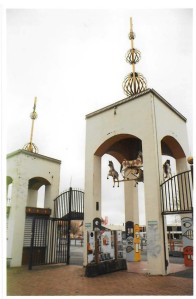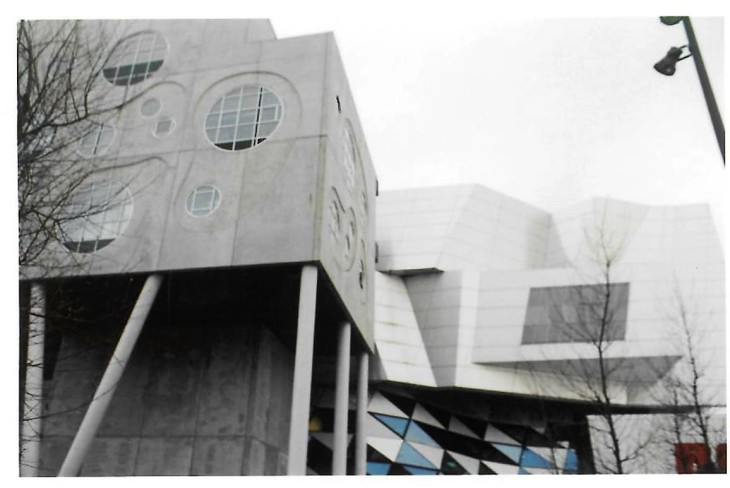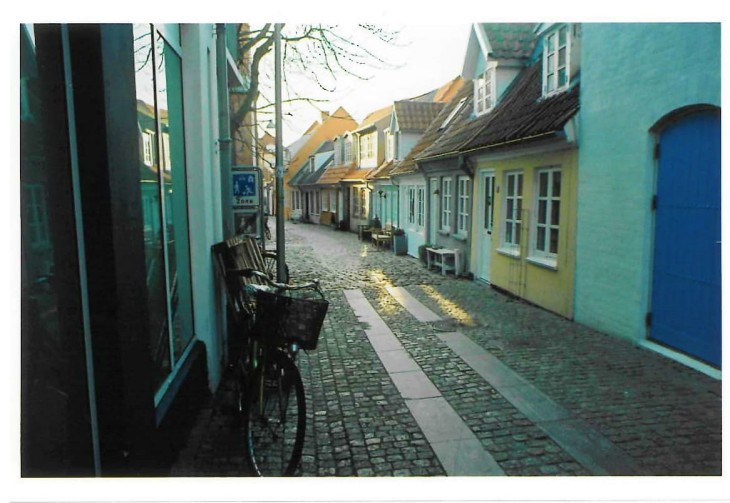I took down all of my postcards. All year, I’ve been collecting post cards both from the cities I visit as well as random free ones they give out at Aalborg’s studenterhus. After striping my walls of the 160 postcards I managed to collect, I decided to stop the packing process because it was too depressing and could be put off some more.
Diary Entry from June 14, 2014

Postcards are fascinating.
Mail is mail, of course. There is nothing special about communicating through the written word today, although it is slightly more quaint and artificial (artifactual) to do so through paper moved across the physical space between one person and another. Postcards, though, are unique. They don’t just move through space but highlight it. This is where you are; this is where I am (temporarily). Here is a blurb worth half the space of a picture of where you are not–and may never be–held in mirror image to your address from Elsewhere.
I am fascinated by the pictures deemed twice as worthy as anything anybody has to say about them. Monuments, cityscapes, national cultures, stock images of cats and dogs on vacation pasted over a beach. Postcards are an exercise in idealism, reduction, and symbolism. How do you diminish an entire city/country into instant recognition from a 5.8 by 4.1 inch rectangle?

I, too, am always trying to evaluate and reduce cities. Specifically those making up my life in its past, present, and future incarnations. Since birth, I have lived in ten different cities, spanning three American states and four countries. I have fucking loved it, but it also complicates the cities’ definitions.
Aalborg, Denmark is one such city. My sophomore year of university, at the bidding of a friend, I studied abroad in Denmark’s fourth largest city (population 200,000). I was nineteen, and I absolutely loved my time there. Although I came from a metropolitan area of almost seven million people (Phoenix), the European city was so condensed that it felt like a living, bustling metropolis in a way that Phoenix’s stagnant freeways and isolated, spread-out homes never did. I had a group of three friends that felt like the greatest sense of family a friend group has ever resembled for me. It was the year I learned to cook (the first year I ever tried coffee, hamburgers, eggs, avocados, etc.). Learned to have an apartment. Learned to drink. Dipped my toes in adulthood one painful fuck-up at a time (lost and homeless with no money or communication in the Southern French countryside on the winter solstice for example).

When I reduce Aalborg to a compartmentalized identity, it has always been metaphorically enormous, proportional to its place in making me me and the quantity of memories it gave me.
Recently, though, at the bidding of the same friend, I went back for a couple of days three and a half years later.
And Aalborg was fucking dinky. It was cold and run-down and small and borderline-lifeless. My friend, who also studied abroad there and had even returned several times since, felt the difference too.

Obviously, it is my friend and I who have changed and not poor Aalborg, but the experience has me obsessing over how exactly we categorize and think about cities in general. I recently read this amazing article by a former professor of mine about a (stupid) experimental community in the Arizona desert where I attended my first and only music festival two years ago because it was free, highlighting the space between a city’s potentially idealist invention and the realism of what life makes in its execution. The city as idealism comes up, too, in Italo Calvino’s Invisible Cities and Brazil’s fascinating capital Brasilia (a city deliberately designed in the shape of a cross with zoning to encourage social blending but, ultimately, fostering strict ghetto and slum systems).

What is the space between a city’s postcard image and its reality? How much of my memories actually reflect place and how much are associations with experience, people, and time in ways that do not allow physical return? Do others who stay put conflate this shifting sensation with time, and is this feeling the root of conservativism when we grow old?
Specifically, as I find myself at yet another crossroads of needing to decide what the fuck I’m doing with my life, this return to Aalborg has me wondering about my perceptions of every city I think I know. How have I drawn these postcards? What spaces must I travel between now and the future? Does space actually really matter at all in the end?


Very moving piece and I love your photographs
LikeLike
Thanks a million! So sweet of you to read, and I’m so glad you like it!
LikeLiked by 1 person